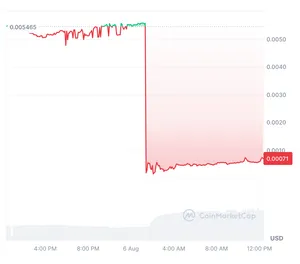Now, Austin "DNP3" Taylor has pleaded guilty to wire fraud after stealing around $1.14 million in investor funds from his CluCoin project, which had claimed it would "help others in need". DNP3 himself had built up a reputation of making generous gifts while livestreaming. He transferred the stolen funds to online casinos, where he then gambled them away.
Taylor faces up to 20 years in prison. The statement from the U.S. Attorney's Office announced that authorities would be notifying identified victims via NFT, and encouraging them to submit statements to the FBI.









